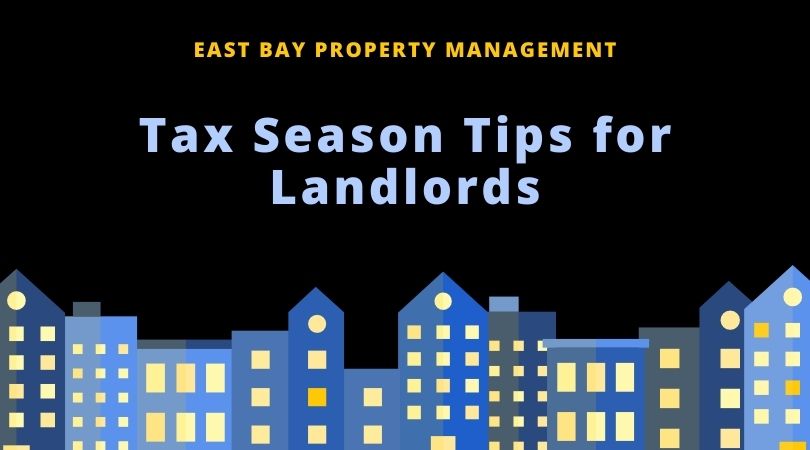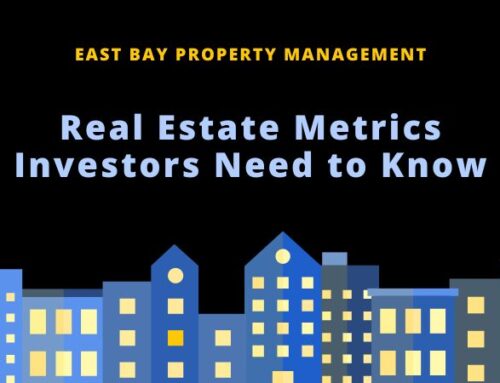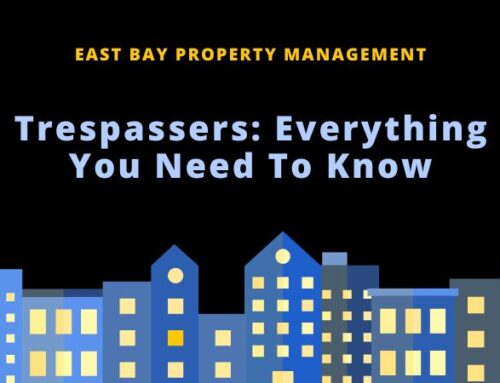It’s tax time!
Just like everyone else, the Internal Revenue Service (IRS) requires you to file your tax returns. Besides rent, the IRS requires information on security deposits, late rent fees, and other charges such as those levied at a tenant for canceling their lease.
Whether you’re just starting out or are a seasoned landlord, filing taxes can be intimidating and mistakes can prove to be costly. It’s for this reason that savvy landlords turn to professionals.
Besides helping you file your taxes correctly, a professional such as an accountant or property management company can also help you find ways to save your taxes and capitalize on your deductions.
In today’s article, we at East Bay Property Management will show you 3 tax season tips to help maximize your refunds for 2022 and beyond.

Keep Accurate Records
As a landlord, being organized is key and this is even more important when it comes to taxes, especially if you are looking to claim any deductions.
With accurate records of all documents, you’ll find that the stress of filing taxes is greatly reduced. Having accurate records will also help to ensure you’re filing accurate claims. Otherwise, you may have a hard time trying to locate important rental documents such as:
- Receipts
- Lease agreements
- Addendums
- Inspection reports
- Records on-court appearances
- Loan documents
- Insurance policies
- Previous tax records
- Property titles and deeds
You may also want to keep any short-term records that may prove useful when making a claim on your taxes. Some examples of these include:
- Cost of advertising or finding tenants for the unit.
- Mortgage interest payments and any credit cards meant for business use.
- Entertainment expenses such as lunches or dinners for existing or prospective customers.
- Professional fees for insurance agents, lawyers, accountants, and realtors.
- Office expenses such as office supplies, internet access, and a second phone line for business.
- Recent rent payments received.
- Recent utility payments.
- Recent repairs or upgrades such as curb appeal.
While there may be plenty of records to keep track of, your efforts may be worthwhile in the end.
Use the COVID Resources
With the COVID pandemic slowing, many dental practices are beginning to return to the pre-pandemic standard. That said, a couple of things still remain unpredictable, such as turnovers, rental prices, or evictions.
And while there are currently no rental relief packages, there are still several resources available for landlords. One such key resource is Benefits.gov – a government site that includes helpful resources such as editorials, webinars, news sources, and forms.

Take Advantage of IRS Deductions.
As a landlord, you can significantly reduce your tax bill by making use of various IRS deductions. The following are some of the big ones.
- Interest on mortgage: Interest on a mortgage is a business expense and is, therefore, tax-deductible. Besides deducting mortgage interest, you can also deduct interest on credit cards for goods or services spent on the rental activity.
- Depreciation on rental property” You cannot make deductions on the actual cost of your rental investment in the year you bought it. However, the IRS allows property owners to deduct a portion of the cost of the property over a number of years.
- Insurance: You can make deductions on the insurance premiums you pay every month.
- Home office: The deduction applies to any workspace that you have devoted for things related to your rental property. And this is regardless of whether your own or rent a home.
- Travel expenses. Do you have to drive in order to carry out a rental activity? If so, you are entitled to a tax deduction for the travel expense you accrue. An example of a travel expense you may incur is when you have to drive to your rental building to deal with a tenant complaint.
- Repairs. Any repairs you do on your rental property are fully deductible in the year in which they occur. The only requirement is that the repairs be ordinary, necessary, and their cost is reasonable.
How to File your Taxes as a Landlord
The manner in which you file your taxes is dependent upon the ownership of the property. If you own it individually, there is one process you should follow, and another if you own it as an LLC.
For those who own their properties individually, the IRS requires that you file a Schedule E, Supplemental Income and Loss. And for those who own their rental investments as a business entity, the taxman requires that you file Form 8825.

Bottom Line
The tax season can be a time of great stress. And with the IRS constantly making changes, the process can feel even more difficult for newbie landlords.
But the good news is – it doesn’t have to be! In fact, it should be a great time to make the most of your hard-earned money.
East Bay Property Management can be an invaluable partner to have in this regard. We’re the #1 choice for East Bay property owners. Our goal is to help property owners maximize their rental incomes!






